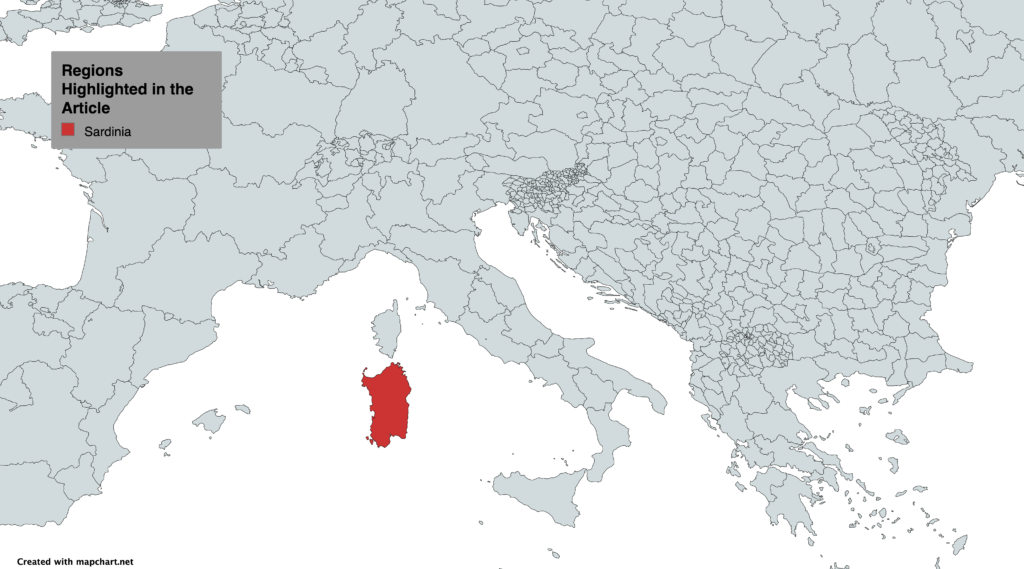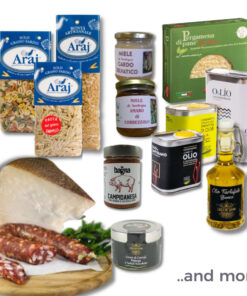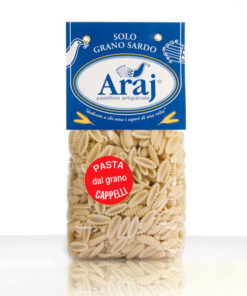
Sardinians’ secrets for longevity!
Sardinia is the first discovered Blue Zone, a demographic and geographic area of the world where people live measurably longer lives. Sardinians share with the Ryukyuans from Okinawa (Japan) the highest rate of centenarians in the world.
More than one, dreams to live a long, healthy and happy life. But how can we get it?
One of the keys to longevity is a plant-based diet.
The classic Sardinian diet consists of whole-grain bread, beans, garden vegetables, and fruits. Sardinians eat daily:
1. Goat’s milk and sheep’s milk. Both have higher nutritional value and are more easily digested than cow’s milk. Both lower bad cholesterol, are anti-inflammatory and may protect against cardiovascular disease and colon cancer. The higher calcium and phosphorus content of goat’s milk may have helped people living in the Sardinian preserve their bone density and consequently lower their risk of fractures. Goat’s milk is also rich in zinc and selenium, which are essential for optimal immune system activity and to promote healthy aging.
The sharp pecorino cheese made from fermented sheep’s milk in Sardinia is particularly interesting. Because of its rich flavor, it can be used sparingly in pasta, soups, and grated over vegetables. Since pecorino is made from the milk of grass-fed sheep, it has high levels of omega-3 fatty acids.
2. Flatbread (carta di musica) The most common bread consumed by Sardinian shepherds is a dry, flatbread made of high-protein, low-gluten Triticum durum wheat (the main ingredient in Italian pasta). High in fiber and complex carbohydrates, it does not cause a sugar spike in blood like processed or refined grains, and it’s easier on the pancreas, lowering the risk for type 2 diabetes. Its name comes from the observation that it is flat and thin, like music paper. Another traditional flatbread is pane carasau. This thin, flatbread made of durum wheat flour, salt, yeast, and water was invented for shepherds, who pastured their sheep for months at a time. It can last up to a year.
Whole durum wheat has a low- to medium-glycemic score, so it doesn’t spike blood sugar. It also contains only a fraction of the gluten that white bread does.
3. Barley ground into flour or added to soups, barley was found to be the food most highly associated with living to 100 among Sardinian men. Barley bread (orgiathu) was favored by shepherds because of its long shelf life and looked much like a regular loaf of bread but was made of ground barley. This bread has a much lower glycemic index than wheat bread, meaning it increases blood glucose more slowly than wheat bread does and thus puts less stress on the pancreas and kidneys.

4. Sourdough bread (pane moddizzosu) is made from whole wheat and uses live lactobacilli (rather than yeast) to raise the dough. This process also converts sugars and gluten into lactic acid, lowering the bread glycemic index and imparting a pleasant, faintly sour taste. This type of bread is able to lower the glycemic load, reducing after-meal glucose and insulin blood levels by 25 percent. This helps protect the pancreas and may help prevent obesity and diabetes.
5. Fennel’s licorice flavors several Sardinian dishes. It’s used as a vegetable (the bulb), as an herb (its willowy fronds), and as a spice (its seeds). Rich in fiber and soluble vitamins such as A, B, and C. It’s also a good diuretic; therefore, it helps to maintain the blood pressure low.
6. Fava beans and chickpeas eaten in soups and stews play an important part in the Sardinian diet, delivering protein and fiber.
7. Sardinian tomato sauce tops bread and pizzas, it is the base for several pasta dishes. Tomatoes are a rich source of vitamin C and potassium. Cooking tomatoes breaks down their cell walls, making lycopene and other antioxidants more available.
The Sardinian custom of coupling olive oil with tomatoes (either drizzling it over raw tomatoes or using it to make sauces) further increases the body’s ability to absorb nutrients and antioxidants.
8- Olive oil is a key component of the Mediterranean and Sardinian diets. Extra virgin olive oil has been shown to help lower heart disease and cancer risk, decrease blood pressure, blood glucose, and insulin levels, and reduce inflammation.

9. Almonds, associated with Mediterranean cooking, appear regularly in Sardinian cooking, eaten alone, chopped into main dishes, or ground into a paste for desserts. Almonds included in a low-calorie diet helped people lose more weight and belly fat while they experienced an increase in protective high-density lipoprotein (HDL) cholesterol and a drop in systolic blood pressure (the bottom number).
10. Sardinians drink a tea of milk thistle, a native wild plant, as locals believe, “cleanse the liver.”
11. Sardinia’s distinctive garnet red Cannonau wine is made from the sun-stressed Grenache grape, producing a tasting profile of strawberry, black cherry, raspberry, anise, tobacco, citrus rind, and cinnamon with medium oak aging. Sardinians drink three to four small (3-ounce) glasses of wine a day on average, spread out between breakfast, lunch, dinner, and a late afternoon social hour in the village. It has been touted as having anti-inflammatory benefits with very high levels of antioxidants, anthocyanins, flavonoids, and polyphenols, that could help prevent heart disease, dementia, and cancer.
12. Despite living on an island in the Mediterranean, due to the high, mountainous elevation, coastal-based seafood is uncommon. Contrary to the typical Mediterranean diet, Sardinians do not consume much fish. And meat is largely reserved for Sundays and special occasions. Unlike other cultures, meats are not considered an essential staple of every meal.
13. Sardinians, like most Italians, plant and tend an extensive backyard garden that provides fresh produce for daily consumption. They enjoy their food but eat in moderation and avoid overeating.
Another key is daily activity, it is an essential aspect of life in Sardinia. It is common to walk a couple of miles a day doing common errands and tasks. Many men walk up steep, mountainous, rocky terrain, working as goat shepherds throughout the pastures. Due to the terrain, walking up and down many steps is common.
Sardinian shepherds use to walk at least five miles a day or more, it provides all the cardiovascular benefits you might expect and also has a positive effect on muscle and bone metabolism without the joint-pounding of running marathons or triathlons.

Sardinia’s strong family values help assure that every member of the family is cared for. They always put family first. People who live in strong, healthy families suffer lower rates of depression, suicide, and stress.
Retirement at 65 years old is an incoherent thought to a man from Sardinia. Sardinian men also enjoy a playful sense of humor, laugh regularly, and overall have an elevated mood. Despite a strong work ethic, men enjoy a very relaxed work-life balance with little stress. They simply love what they do and continue working as long as possible.
Another strong tenet of Sardinians is the importance of the elderly. Elders are valued, promoted, and celebrated as possessing the most wisdom. As praised members of the family, elders are not placed in nursing homes or rehabilitation centers but rather actively participate in communal life, often living with multi-generations under the same roof. Elders remain active, working and contributing to the family and community by tending the garden, cleaning, or cooking.
And another factor of such a high concentration of centenarians is identified in the genetics of the Sardinians can.
There is no magic pill for longevity. But it appears that the culture and lifestyle of Sardinian men certainly promote good health and well-being. These healthy habits could be adopted to reduce the risk of disease and help us live longer and happier lives.

Buy traditional Sardinian products
Charcuterie
In stock


